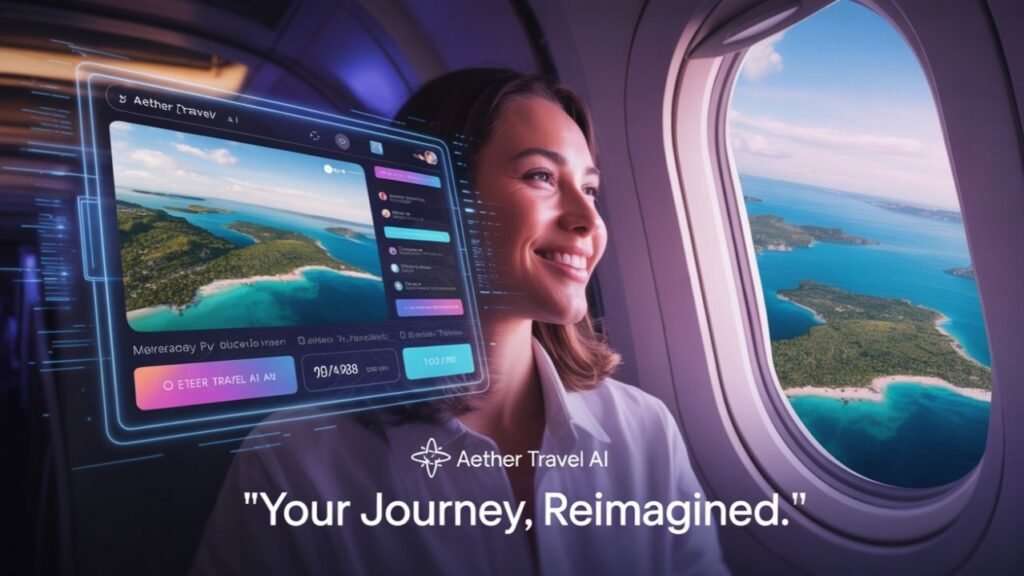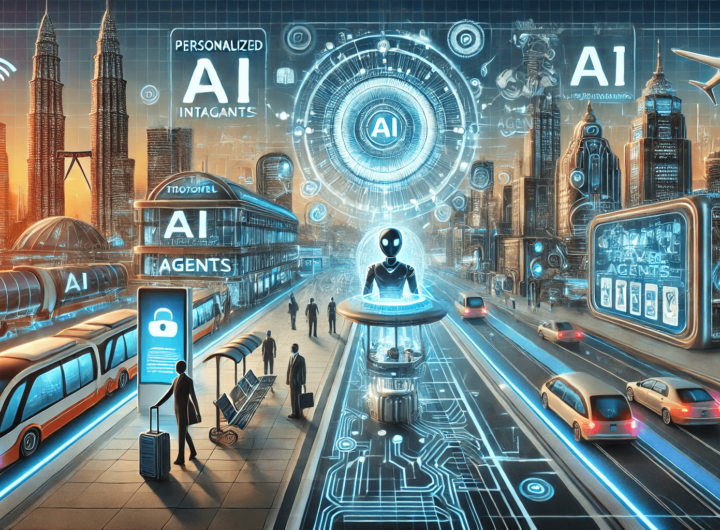The way we travel has undergone a dramatic shift—and artificial intelligence (AI) is at the heart of this transformation. In 2025, travelers are no longer flipping through guidebooks or spending hours comparing flights and hotel options. Instead, they’re relying on intelligent algorithms and real-time personalization to plan, book, and explore with precision and ease.
From AI-powered travel assistants to predictive analytics and smart recommendations, artificial intelligence is reshaping the travel journey from start to finish. Here’s how AI is revolutionizing the travel experience in 2025—and what that means for modern globetrotters.
AI in Travel Planning: Personalized Itineraries in Seconds
Planning a trip used to be a daunting task. In 2025, AI makes travel planning seamless, tailored, and enjoyable. Modern travel apps use machine learning to analyze past behavior, budget preferences, and travel goals to generate customized itineraries in real time.
What this looks like in practice:
- Travelers input a destination and travel dates.
- The AI instantly curates a personalized day-by-day plan with activities, restaurant suggestions, and transportation options.
- Real-time updates adjust the itinerary based on weather or local events.
AI even learns your preferences over time, helping to fine-tune recommendations for future trips.
Smarter Booking: AI-Powered Price Predictions and Seamless Integrations
Gone are the days of endlessly tracking flight prices or flipping between booking platforms. AI now monitors pricing trends and predicts the best time to buy with impressive accuracy.
Key AI booking features in 2025:
- Dynamic pricing engines that forecast airfare and hotel rates.
- Chatbots that book flights or accommodations instantly via messaging apps.
- Voice assistants integrated into travel platforms that enable hands-free booking.
Some advanced travel platforms also integrate virtual credit cards, AI fraud detection, and loyalty program management—all without needing a dozen different apps.

AI Travel Assistants: Your Personal Concierge on the Go
AI-powered virtual assistants are now essential travel companions. They help you navigate cities, translate signs, answer local etiquette questions, and even reroute your plans when flights are delayed.
These AI assistants offer:
- Real-time navigation and transit alerts.
- Recommendations based on time of day, location, and personal interests.
- Voice translation in multiple languages for smoother communication abroad.
The best part? They operate 24/7, learn from your behaviors, and adapt based on your unique travel style.
Enhanced Airport & Hotel Experiences
Airports and hotels have embraced AI to streamline operations and enhance guest satisfaction. Many airports now use facial recognition for automated check-ins, security screening, and even boarding—cutting wait times significantly.
Hotels in 2025 offer:
- AI chatbots for room service and concierge tasks.
- Smart rooms that adjust lighting, temperature, and music based on guest preferences.
- Robot butlers and voice-controlled assistants for guest requests.
These enhancements create a contactless, customized experience that caters to the modern traveler’s desire for speed and personalization.
AI-Powered Language Tools and Cultural Integration
One of the biggest challenges in travel—language barriers—is also being addressed by AI. Advanced AI translators now offer real-time voice, image, and text translation, making cultural immersion easier and more enjoyable.
How travelers benefit:
- Point your phone at a sign, and it instantly translates.
- Have live conversations with locals in different languages.
- Access audio guides for museums and landmarks in your preferred language.
These features not only enhance convenience but also foster deeper cultural connections.
Smart Travel Recommendations and Safety Alerts
AI doesn’t just offer recommendations based on reviews—it combines user data, real-time trends, and geolocation to suggest the most relevant experiences.
For example:
- Suggesting a local hidden gem café during your morning walk.
- Alerting you about protests, unsafe areas, or weather disruptions.
- Recommending alternative attractions when sites are overcrowded.
Travelers can enjoy spontaneity with a safety net—knowing AI is always working in the background to optimize and protect their journey.
Sustainable Travel Through AI Optimization
As climate-conscious travel gains popularity, AI plays a role in reducing our carbon footprint. AI algorithms help travelers:
- Choose greener routes and flights with lower emissions.
- Identify eco-certified accommodations and tours.
- Monitor energy usage during hotel stays.
This shift is especially appealing to younger travelers who prioritize sustainable tourism and want to align their lifestyle with global climate goals.
Ironically, AI is not making travel feel more robotic—it’s doing the opposite. By taking care of repetitive, time-consuming tasks, AI allows travelers to focus on what truly matters: experiencing the world, connecting with cultures, and creating lasting memories.
As 2025 unfolds, embracing AI in your travel routine is no longer optional—it’s essential. From smart planning and seamless booking to real-time recommendations and eco-friendly optimizations, AI is transforming travel into a more intuitive, personalized, and enjoyable adventure.
AI travel planning, artificial intelligence in travel, smart travel technology, AI travel assistants, AI-powered booking platforms, personalized travel recommendations, real-time travel alerts, travel apps 2025, AI language translators, smart airport tech, hotel automation 2025, sustainable AI travel, AI in tourism, smart itinerary planning, travel with AI

